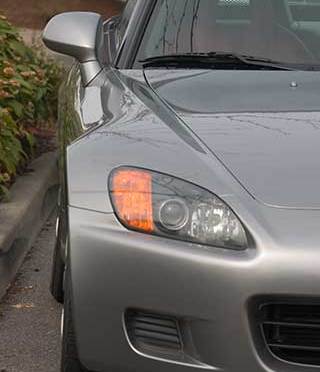It’s probably safe to say that most of us have been there before. You’ve just gotten off of a long flight, and you’re ready to start your vacation. The rental car shuttle has just dropped you off at the counter, and after the tedious search to confirm your reservation, you get the following question: “Would you like to buy our accident waiver insurance?”
 There’s almost always a moment of confusion. You don’t want to be liable to the rental car company if you damage their car, but paying for all of that coverage can be very expensive and you already have auto insurance. We priced out a few one-day rentals and saw that adding all of the possible insurance to an (already expensive) rental would add another 20% or so to the cost of renting the car.
There’s almost always a moment of confusion. You don’t want to be liable to the rental car company if you damage their car, but paying for all of that coverage can be very expensive and you already have auto insurance. We priced out a few one-day rentals and saw that adding all of the possible insurance to an (already expensive) rental would add another 20% or so to the cost of renting the car.
But should you pay for it at all? Here is what they will try to sell you:
- Loss Damage Waiver. This is essentially collision coverage for your rental car. Like your auto policy, it will pay for damage to the rental car. This will also cover the rental car company’s lost income from having the car out of service.
- Personal Accident Insurance. This coverage is personal injury protection that will provide for medical expenses, and depending on the company or state laws, may also provide some death benefits, too.
- Personal Effects Protection. This coverage will insure any personal belongings that are stolen from the car or damaged in an accident.
- Additional Liability Insurance. This is just what it sounds like: liability insurance. Like the personal liability insurance on your home or auto policy, this will provide liability protection against claims related to injury, death or damage related to your rental car.
- Roadside Assistance. This will provide roadside assistance in case your rented car breaks down and you need help, or if you lock your keys in the car. If you are a member of the American Automobile Association (AAA), you already have this protection; your coverage travels with you, not your car. Other insurance carriers may also cover your rented car.
Our advice: Relax. For most people who already have their own automobile insurance, it’s likely that you are already covered for many of these items under your existing policy, at least up to your existing policy limits. You may be responsible for deductibles or other charges like loss of use, but your existing policy will provide you some protection.
Also, your homeowner’s or renter’s insurance probably covers lost or damaged personal items, even in the rental car. Finally, your credit card may even cover some of your losses, although this varies from issuer to issuer.
The key here is your policy limits: if you are renting a newer, nicer car than is covered by your auto insurance, your policy might not cover the losses in a serious accident. If there’s any question about whether or not you need to spring for the rental car insurance coverage, here are two easy things you can do:
- Call your insurance carrier. Ask them what coverage is available to you under your existing policy when you rent a car. Ask them what you might be on the hook for in the event of a total loss of your rental car.
- Call your credit card company. Your credit card issuer may offer coverage, provided you actually use the card to book and pay for the car rental. Call the company to see what coverage they provide and what the limitations are.
When does it make sense to buy the rental car insurance? If you don’t own a car or have only minimal coverage, you should seriously consider buying the insurance. Also, your personal policies may not cover you out of the country or if you drive the rental car across an international border, so check with your insurer before you rent a car outside the U.S.
Image credit: © James Hearn | Dreamstime Stock Photos

